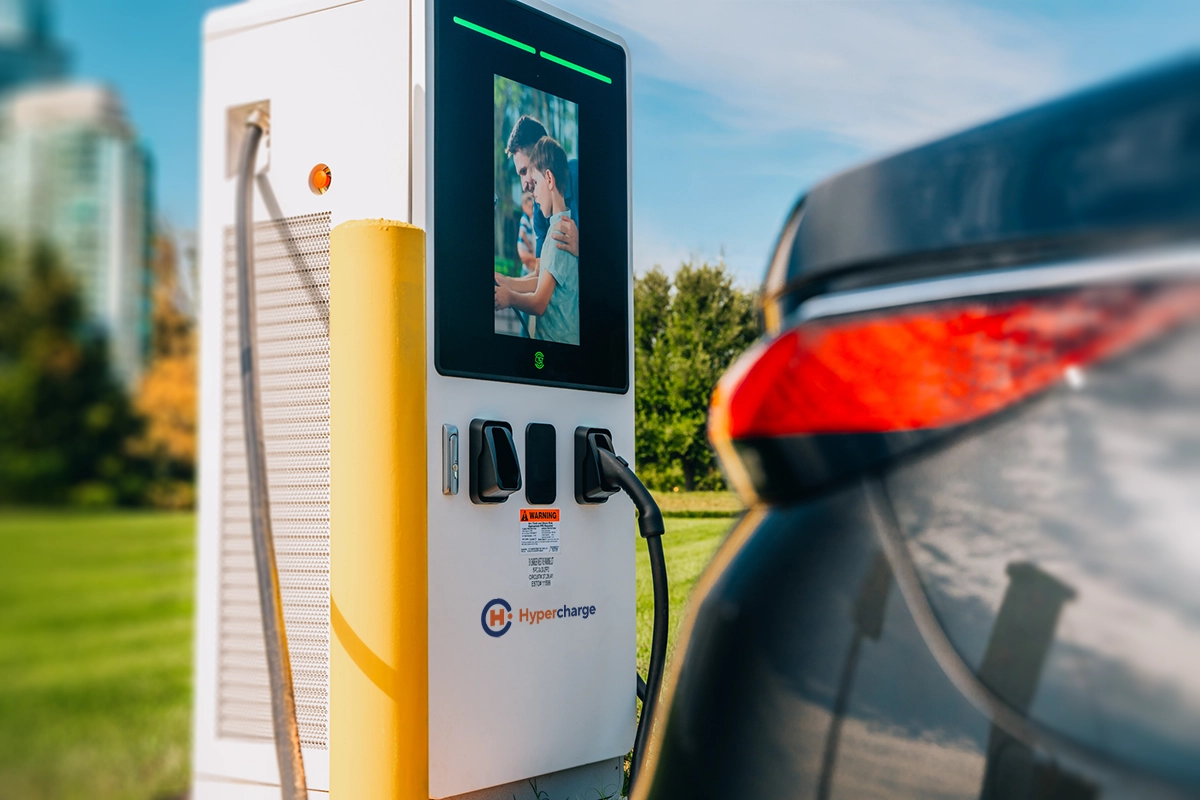British Columbians are up to speed on the many benefits of making the switch to an electric vehicle, from reducing greenhouses gasses to saving on fuel and maintenance costs.
In fact, nearly 23% all new light vehicles in B.C.— 27% in Vancouver—are zero-emissions vehicles (ZEVs). For comparison, less than 10% of new light-duty vehicles in Ontario are ZEVs, and just over 7% in Toronto.
The total number of EVs on BC roads is expected to quadruple over the next decade, from 195,000 to 700,000-900,000, with a corresponding increase in the demand for EV charging.
Yet, too many residents of apartment/condo buildings still don’t have access to EV charging at home. Can you rely exclusively on public EV charging in Vancouver and other BC cities? We crunched the numbers to find out.
The Case for Going Electric in British Columbia
Among the biggest incentives to go electric in BC are the relatively low electricity rates, thanks to 98% of the province’s energy coming from affordable renewable sources. This can add up to huge savings on the cost of fuel.
$3,000
Annual savings in purchase, fuel, and maintenance costs per year over ten years of EV
ownership
$80%
Savings on fuel costs after switching an internal combustion engine vehicle to a battery electric vehicle
$10
Average cost of an electric vehicle public charging for a trip from the City of Vancouver to Kelowna
All data courtesy of BC Hydro.
Where Do EV Owners Live?
About one-third of Canadians live in multi-unit residential buildings (MURBs), but only 12% of EV owners live in MURBs, according to a Pollution Probe report.
Natural Resources Canada suggests the discrepancy is even higher in cities like Vancouver, where 43% of residents live in MURBs.
But MURB dwellers, especially younger residents, are no less keen on EVs than drivers from single-family homes.
A Clean Energy Canada survey found that 78% of Vancouverites ages 18-44 are inclined to buy an EV, and about 60% of them live in MURBs.
The real issue, according to Natural Resources Canada and many EV advocates, is that MURB residents face higher barriers to EV charging than residents in ground-oriented homes.
As a result, they’re far more likely to be dependent on the local public EV charging network. Pollution Prob reports that 42% of MURB residents use public charging stations for more than half their charging needs.
Public EV Charging Stations in Vancouver and BC
All three levels of government have invested heavily to promote EV adoption and expand BC’s public EV charging infrastructure.
For example, BC Hydro partnered with the province to complete the “Electric Highway” in 2024, ensuring there are public fast chargers every 150 kilometres on major roadways across the entire province.
Transport Canada reports there are currently 6,947 public charging ports in B.C., with a ratio of 28 light-duty EVs for every public charging port.
Is that enough? The answer, according to a 2024 Canadian Automobile Association survey of more than 5,000 EV owners in BC, is a resounding no.
72% of participants responded that they aren’t satisfied with the number of public fast charging stations in the province.
A recent Pollution Probe survey found that only 21% of EV drivers in BC feel the number of public EV chargers of all types is adequate and just 16% feel there are enough public fast chargers.
Hypercharge EV Ready Plans for MURBs
Now is the time for BC developers, strata boards, and property managers to address residents’ urgent need for EV charging at home.
The province is taking concrete steps to ensure that 100% of light-duty vehicles sold are zero-emission vehicles by 2035—including generous financial incentives that won’t last forever.
Apartment, condo, and townhome complexes can apply for BC Hydro rebates for the purchase and installation of EV chargers and the electrical upgrades required to become EV Ready.
This can significantly reduce costs now and make it simpler and more affordable to add more EV chargers over time.
Up to 75% of the cost of a Hypercharge EV Ready Plan is eligible for funding, and some municipalities will top up the rebate amount.
This comprehensive document—essential to meet the eligibility requirement for electrical upgrade rebates—offers detailed blueprint for making EV charging available to each residential unit within a building.
It also includes an Electrical Planning Report (EPR), our recommendations for EV charging stations, networking equipment, and software, as well as design advice and cost estimates.
Talk to Hypercharge
Hypercharge can future-proof your multi-unit residential building with cutting-edge EV charging solutions that make the most of current financial incentives.
Schedule a free EV charging consultation with one of our experts to learn more about how Hypercharge can help you plan and execute the large-scale deployment of EV charging stations across your properties.
